- Curators: FORGET CHATERERA-ZAMBUKO & JAMES LOWRY
Bonfires burned across the Empire as the British retreated in the face of resistance to imperial rule. Records were going up in flames. Others were airlifted out and sent to Britain. From what remained, the newly independent countries stitched together their national archival heritage.
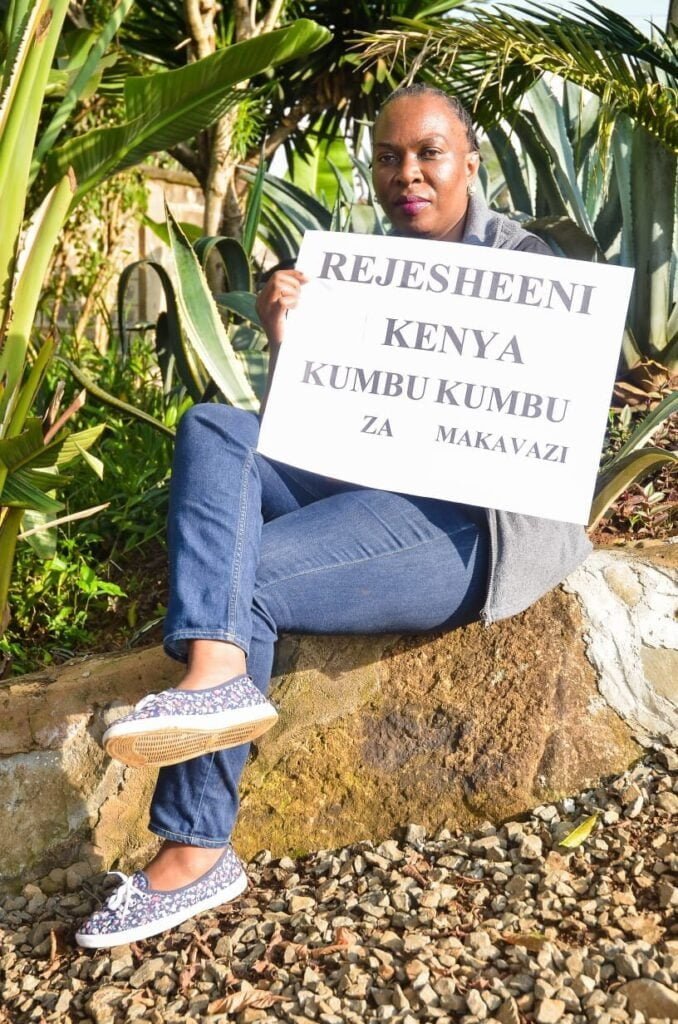
“Return back Kenya’s archival memories.” Juliet Erima, Kenya
- The UK National Archives holds 2726 items of Kenyan provenance in FCO 141.
- Language: Kiswahili.
- Photographer: Jael Gudu.
Archivists across The Commonwealth have been asking for the return of records for decades.
For example, since 1969, archivists from across eastern and southern Africa have been passing resolutions requesting the return of records from Britain.[1] All requests have been met by the British state with silence, denial or obfuscation. In 2011, legal proceedings brought the Foreign and Commonwealth Office’s “Migrated Archives” to light. Formed of records removed from 37 former dependencies, the Migrated Archives are now at the UK National Archives (series FCO 141).[2] In 2017, members of the Association of Commonwealth Archivists and Records Managers voted unanimously to adopt a position paper calling on the UK government to repatriate the records.[3] There are precedents for repatriation in international law and professional codes of ethics,[4] and while the Dutch National Archives has begun returning colonial records to the places of their creation,[5] the UK government ignores the call to restorative justice.
IN THIS HISTORICAL MOMENT, AS STATUES OF SLAVERS FALL AND THE CULTURAL HERITAGE SECTOR IS ALIVE WITH TALK OF RESTITUTION, THERE IS SILENCE AROUND THE MIGRATED ARCHIVES.
The National Archives of the UK does not prioritise the digitisation of these records.
The Foreign, Commonwealth and Development Office will not account for its custodianship of the records.
The Archives and Records Association has said nothing about this situation. British archivists say and do nothing about this ongoing injustice of colonialism.
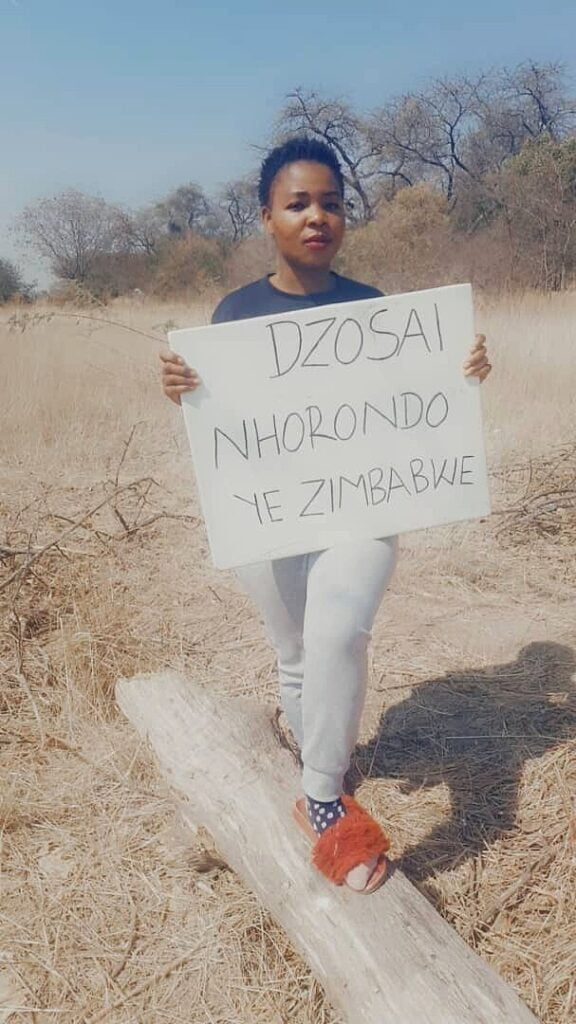
“bring back the archives of Zimbabwe.” forget chaterera-zambuko, Zimbabwe
- FCO 141 contains 15 items from Zimbabwe, listed in the catalogue as Southern Rhodesia.
- Language: Shona.
- Photographer: Geraldine Farai Zambuko.
LOST UNITIES IS A VIRTUAL EXHIBITION THAT REPEATS AND MAKES VISIBLE THE DEMANDS FOR REPATRIATION. TAKING ITS NAME FROM HENRI LEFEBVRE’S CATALOGUE OF ABSENCE, LOST UNITIES ALLUDES TO NOTIONS OF ARCHIVAL WHOLENESS AND ORGANICITY, LOST IN THE VIOLENCE OF DISPLACEMENT.
THE EXHIBITION IS CUMULATIVE AND NEW CONTRIBUTIONS ARE WELCOME. PLEASE CONTACT JAMES [DOT] LOWRY [AT] QC [DOT] CUNY [DOT] EDU.
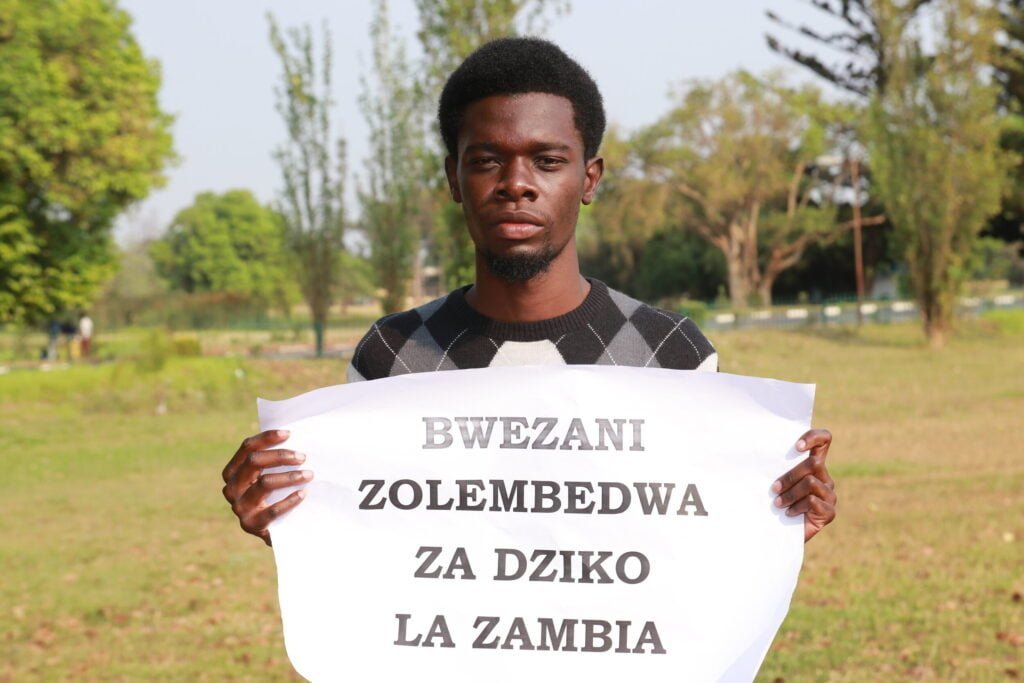
“Bring Back The Records That Belong To Zambia.” Shalom Zulu, Zambia.
- The UK National Archives holds 583 items from Zambia (appears in the catalogue as Northern Rhodesia) in FCO 141.
- Language: Nyanja.
- Photographer: Abel M’kulama C.M.
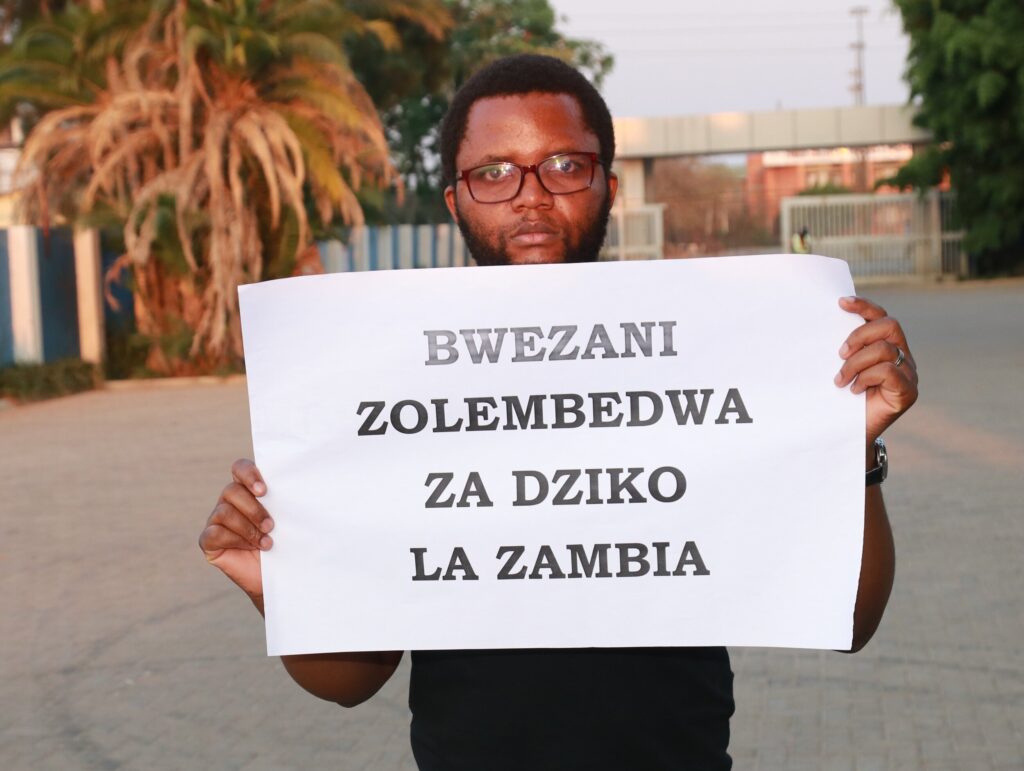
“Bring Back The Records That Belong To Zambia.” Abel M’kulama C.M., Zambia.
- The UK National Archives holds 583 items from Zambia (appears in the catalogue as Northern Rhodesia) in FCO 141.
- Language: Nyanja
- Photographer: Caesar Ngonda

“Bring Back Our Archives.” Tshepho Mosweu, Botswana.
- The UK National Archives’ series FCO 141 holds 304 items from Botswana, listed in the catalogue as Bechuanaland.
- Language: Setswana.
- Photographer: Thabiso Archie Ramalepa.
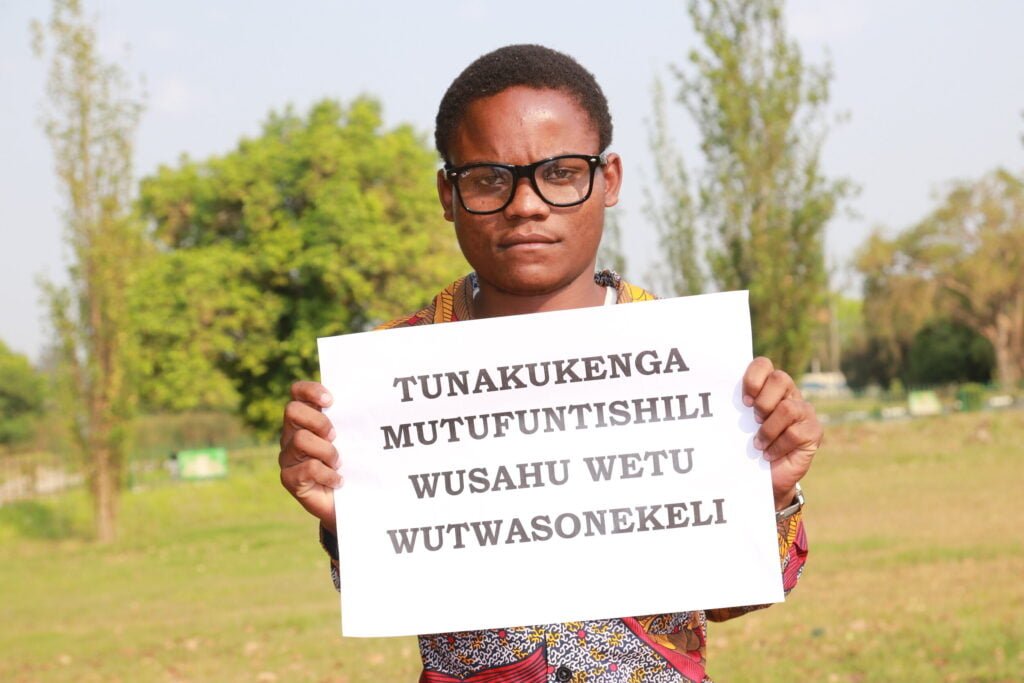
“We Want You To Bring Back Our Records.” Charles Chilufya, Zambia.
- The UK National Archives holds 583 items from Zambia (appears in the catalogue as Northern Rhodesia) in FCO 141.
- Language: Lunda
- Photographer: Abel M’kulama C.M.
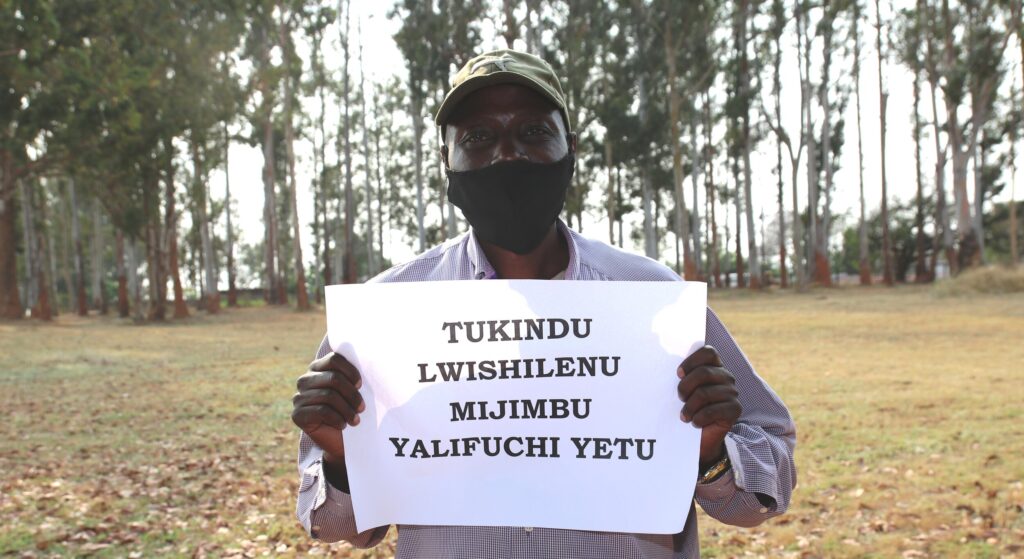
“Bring Back Our Records.” Edward Chimavu, Zambia.
- The UK National Archives holds 583 items from Zambia (appears in the catalogue as Northern Rhodesia) in FCO 141.
- Language: Luvale
- Photographer: Abel M’kulama C.M.
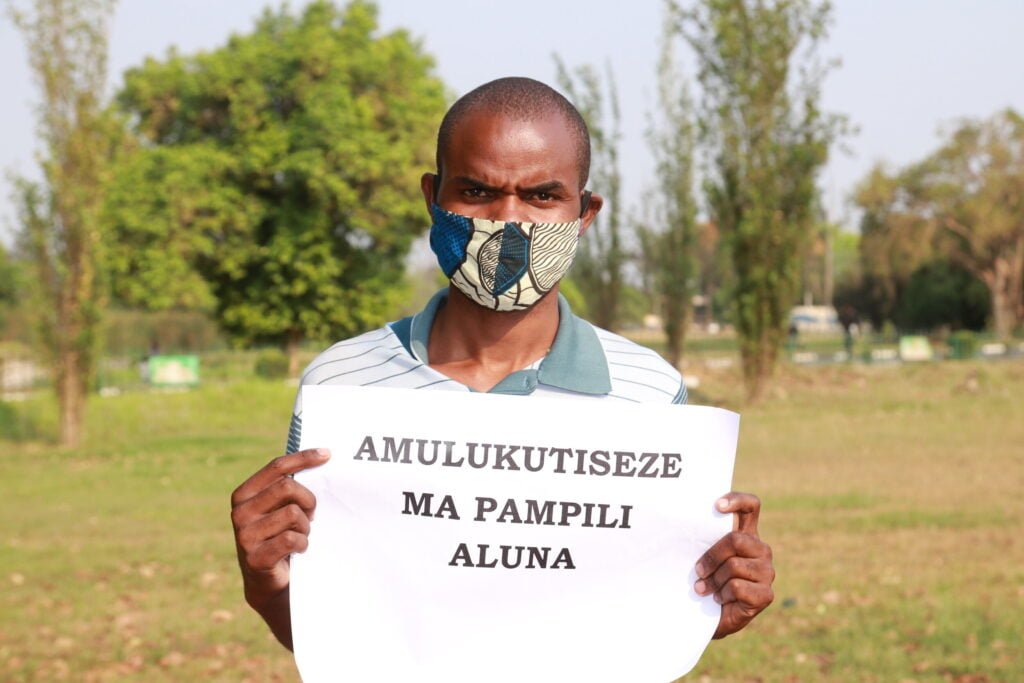
“You Bring Back Our Records.” Geofrey Siwakwi, Zambia.
- The UK National Archives holds 583 items from Zambia (appears in the catalogue as Northern Rhodesia) in FCO 141.
- Language: Lozi
- Photographer: Abel M’kulama C.M.
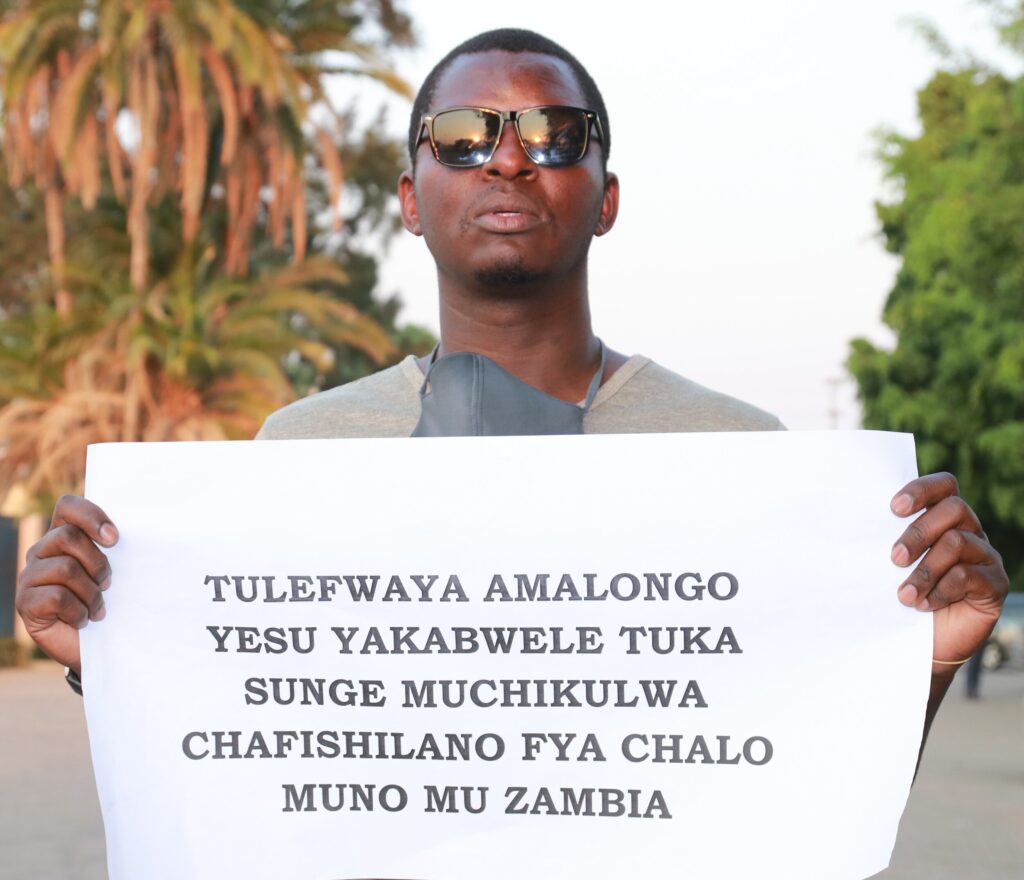
“We Want Our Records To Come Back So That We Can Keep Them In The National Archives Of Zambia.” Caesar Ngonda, Zambia.
- The UK National Archives holds 583 items from Zambia (appears in the catalogue as Northern Rhodesia) in FCO 141.
- Language: Bemba
- Photographer: Abel M’kulama C.M.
About the Curators
Dr. Forget Chaterera-Zambuko teaches archival science at the National University of Science and Technology, Zimbabwe. She is a post-doctoral fellow at Sorbonne University, Abu Dhabi, and a research fellow in the Department of Information Science at the University of South Africa. She is currently working on a piece called ‘Ngadzoke Please: A Dare / Inkundla for the Rhodesian Army Records’, which considers archival displacement through the lens of traditional Zimbabwean jurisprudence.
Dr. James Lowry is based at the City University of New York, where he is an assistant professor at the Queens College Graduate School of Library and Information Studies and director of the Archival Technologies Lab. He recently completed an international survey of archival claims for the International Council on Archives. His recent publications include the edited collection Displaced Archives (Routledge, 2017) and another collection, Disputed Archival Heritage, is forthcoming.
Footnotes
1 Mnjama, N. ‘A Chronology of the East and Southern African Regional Branch of the International Council on Archives Resolutions, 1969-2005’, ESARBICA Journal, 26, 2007.
2 Banton, M. ‘Displaced Archives in the National Archives of the United Kingdom’ in Lowry, J. (ed.) Displaced Archives, Routledge, 2017.
3 ACARM, The ‘Migrated Archives’: ACARM Position Paper, Association of Commonwealth Archivists and Records Managers, 2017. Available at: https://acarmblog.files.wordpress.com/2018/10/acarm-position- paper-migrated-archives-adopted-20171125.pdf (last accessed 21 September 2020).
4 Forthcoming work by Jamila Ghaddar discusses the articulation of ‘territorial provenance’ in UNESCO and ICA documentation and the work of Charles Kecskemeti. See article 2 of the International Council on Archives’ Code of Ethics, 1996. Available at: https://www.ica.org/sites/default/files/ICA_1996-09- 06_code%20of%20ethics_EN.pdf (last accessed 21 September 2020).
5 For the return of records to Indonesia, see Karabinos, M. ‘Displaced Archives, Displaced History: Recovering the Seized Archives of Indonesia’, Bijdragen tot de Taal-, Land- en Volkenkunde, 169:2/3, 2013. A return to Suriname is discussed in Jeurgens, C. and Karabinos, M., ‘Paradoxes of Curating Colonial Memory’, Archival Science, 20, 2020. A full history of this return is forthcoming from Maurits Hassankhan and Frans Van Dijk.
6 Lefebvre, H. The Missing Pieces (trans. Sweet, D.L.) MIT Press, 2014.